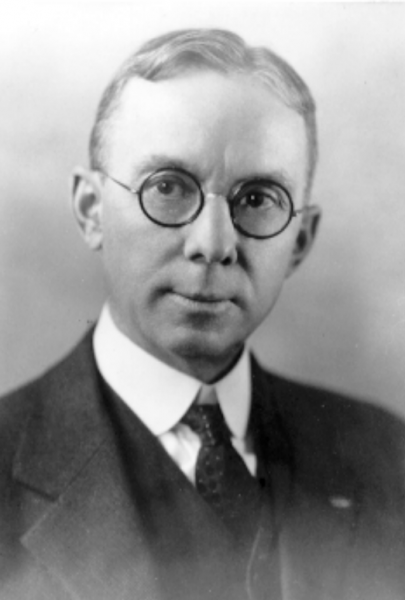Our series on Colorado’s governors continues with Clarence J. Morley, Colorado’s 24th governor. Governor Morley served one term from 1925-1927.
Early life

Clarence Joseph Morley was born on February 9, 1869, in Dyersville, Iowa. He moved to Trinidad, Colorado with his family in 1890, where he worked as an official of the District Court. This position sparked his interest in a law career, and he attended law school at Denver University. Morley worked as a lawyer in Denver and served on the Denver School Board until he was elected District Judge of Denver in 1918.
Morley was a high-ranking member of the Ku Klux Klan and his judicial election was part of a larger effort by the Klan to infiltrate Colorado’s court system. According to a recent History Colorado story, Morley was an advisor to John Galen Locke, the leader of Colorado’s Ku Klux Klan chapter, and often ignored legal ethics to enact Locke’s wishes in the courts. For example, when assigned to the criminal division of the district courts, Morley rejected ten of the twelve names that had been randomly selected for a grand jury and replaced them with Klan-approved jurors. This was intended to create a “private panel of inquisitors” that could enact the Klan’s racist ideologies using the power of the court system. This was ultimately unsuccessful – the district attorney asked the Colorado Supreme Court to order Morley and his grand jury to properly fulfill their duties and the jury’s term expired before they could issue an indictment against anyone.
Political career
With the financial and political support of the Ku Klux Klan, Morley was elected governor in 1924 along with a slate of other candidates that were nominated by the Klan-controlled Republican Party. Morley was known as the “Ku Klux Klan Governor” because he never made a political decision without consulting Locke. A 1965 Colorado Magazine article describes how Morley was constantly on the telephone with Locke and had a messenger specifically assigned to carry written messages between the two, meaning that the Klan’s local leader essentially controlled Colorado’s executive branch.
Morley’s inaugural address highlighted the Klan’s political goals, which were intended to discriminate against immigrants and Catholics. These included:
- Passing an act that would ban certain groups of immigrants from moving to Colorado.
- Removing allowances in Colorado’s prohibition laws that permitted Catholic churches to buy wine for sacramental use, meaning that Catholics could not celebrate Mass.
- Eliminating state agency positions held by those who did not support the Klan, and creating new positions to reward Klan followers.
Although the Colorado House of Representatives was mostly composed of Klan-supported Republicans, the Colorado Senate held many members who opposed Morley and the Klan’s agenda. A coalition of six Republicans and fourteen Democrats in the Senate was able to kill almost all the Klan-approved legislation introduced in the House. By the end of Morley’s term, only 15% of the bills introduced by the General Assembly made it to his desk to be signed.
Because of this unproductive term, internal conflict within Colorado’s Klan organization, and rising public disgust with the Klan’s violence and corruption, Morley and many other Klan-supported candidates lost in the 1926 primary and the height of the Klan’s influence over Colorado’s politics was over.
Life after politics
After his term, Morley left politics and established a stock brokerage firm in Indiana before moving back to Denver to practice law once again. In 1935, he was arrested for mail fraud and served five years in Leavenworth Prison. After leaving Leavenworth, Morley moved to Oklahoma City, where he died in 1948.
- Colorado’s Governors: Ralph L. Carr - July 11, 2025
- Celebrating Colorado’s immigrant heritage - June 27, 2025
- Colorado’s Scenic and Historic Byways: Guanella Pass - June 6, 2025